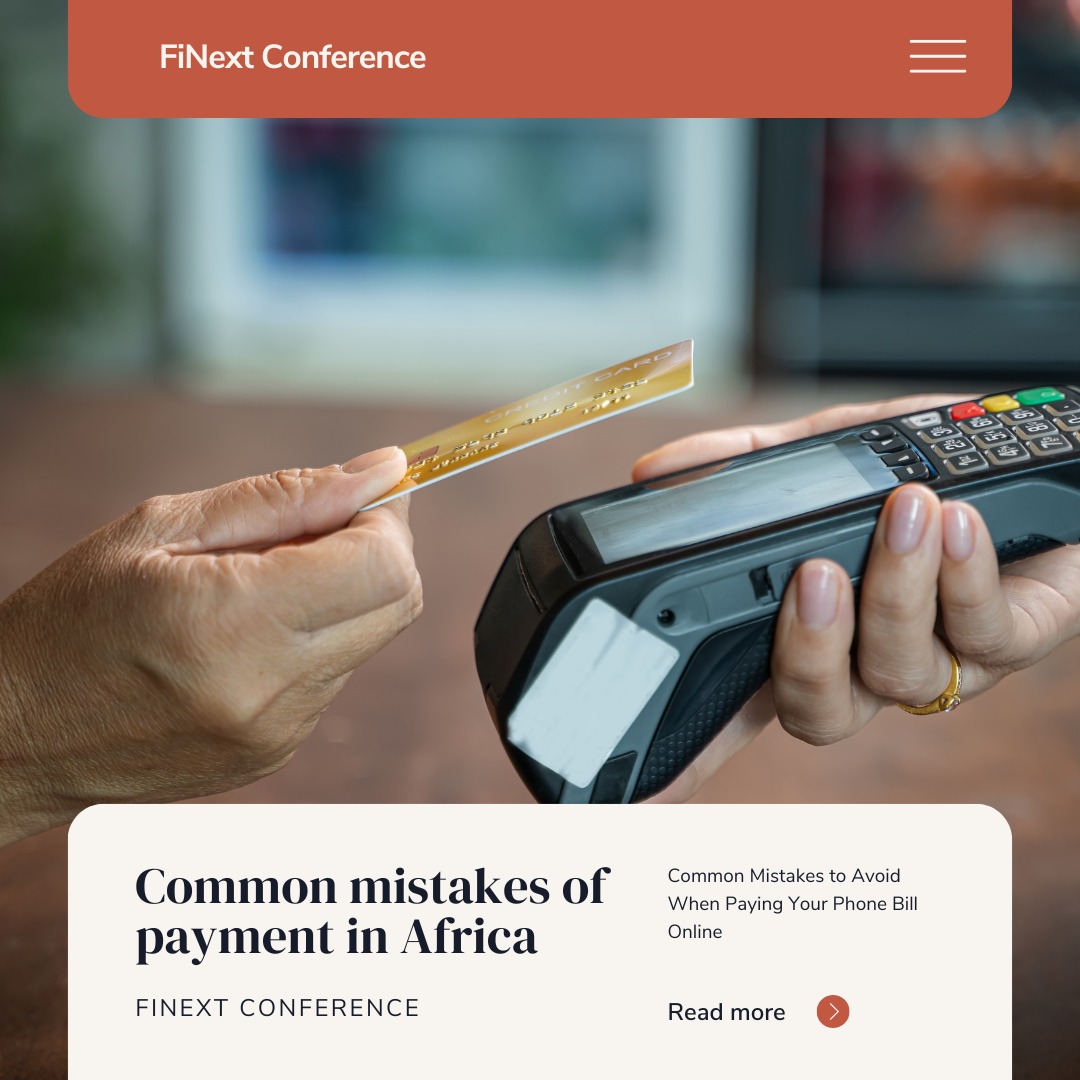In today’s digital age, the efficiency and convenience of payment processing play a critical role in shaping the customer experience. As businesses strive to meet the ever-increasing demands of their clientele, integrating third-party payment processors has become a popular and effective solution. These services not only streamline transactions but also enhance the overall customer journey. Here’s how third-party payment processors improve customer experience: 1. Simplified Checkout Process A cumbersome checkout process can lead to cart abandonment and lost sales. Third-party payment processors simplify this process by offering user-friendly interfaces and multiple payment options. Customers can easily and quickly complete their purchases without navigating through complex steps or filling out extensive forms. 2. Enhanced Security Security is a major concern for online shoppers. Third-party payment processors employ advanced encryption technologies and compliance with industry standards (such as PCI DSS) to ensure that customers’ payment information is protected. This builds trust and confidence, encouraging customers to make repeat purchases. 3. Global Reach For businesses looking to expand internationally, third-party payment processors can facilitate transactions in multiple currencies and support various payment methods popular in different regions. This global reach allows customers to pay in their preferred currency and method, enhancing their shopping experience and expanding the business’s market potential. 4. Seamless Mobile Payments With the rise of mobile commerce, offering a seamless mobile payment experience is essential. Third-party payment processors often provide optimized mobile payment solutions that integrate easily with mobile apps and websites. This ensures that customers can shop and pay conveniently from their mobile devices, leading to higher satisfaction and loyalty. 5. Faster Transactions Speed is crucial in the digital age. Third-party payment processors facilitate faster transaction processing, reducing the waiting time for customers. Instant payment confirmations and quicker order processing enhance the overall efficiency of the shopping experience, keeping customers satisfied and engaged. 6. Comprehensive Reporting and Analytics Third-party payment processors offer businesses detailed reporting and analytics tools. These insights help businesses understand customer behavior, preferences, and trends. By analyzing this data, businesses can make informed decisions to improve their services, tailor marketing strategies, and ultimately provide a better customer experience. 7. Customer Support and Dispute Resolution Handling payment-related issues can be challenging for businesses. Third-party payment processors often provide robust customer support and dispute resolution services. This means that customers have access to timely assistance for any payment-related concerns, enhancing their overall satisfaction and trust in the business. 8. Recurring Payments and Subscriptions For businesses that operate on a subscription model, third-party payment processors offer efficient recurring payment solutions. Customers can easily set up and manage their subscriptions without the hassle of manual renewals. This convenience fosters a positive experience and encourages long-term customer relationships. Conclusion Incorporating third-party payment processors into your business operations can significantly enhance the customer experience. From simplifying the checkout process and ensuring security to enabling global reach and providing comprehensive support, these services offer numerous benefits that cater to the needs and expectations of modern consumers. By prioritizing efficient and secure payment solutions,… Continue Reading How Third-Party Payment Processors Improve Customer Experience
Category: Payment
The Role of Mobile Payments in E-commerce Growth
In recent years, the landscape of e-commerce has evolved dramatically, with mobile payments playing a pivotal role in this transformation. As smartphones become ubiquitous and mobile internet access becomes faster and more reliable, consumers are increasingly turning to their mobile devices for shopping and payments. This shift has not only changed the way people shop but has also driven significant growth in the e-commerce sector. In this blog, we will explore the key ways in which mobile payments are fueling e-commerce growth and transforming the retail industry. The Rise of Mobile Payments Mobile payments refer to financial transactions conducted through mobile devices, such as smartphones and tablets. These transactions can include purchasing goods and services online, transferring money, or even paying bills. The convenience and speed offered by mobile payments have made them an attractive option for consumers and businesses alike. Convenience and Accessibility One of the primary reasons mobile payments have gained popularity is their convenience. Consumers can make purchases with just a few taps on their smartphones, without the need to enter lengthy credit card details or billing information. Mobile wallets, such as Apple Pay, Google Pay, and Samsung Pay, store payment information securely, allowing for quick and seamless transactions. Additionally, mobile payments make e-commerce more accessible to a broader audience. In many developing countries, where traditional banking infrastructure may be lacking, mobile payments provide a viable alternative for participating in the digital economy. This accessibility has opened up new markets for e-commerce businesses, driving growth and expanding their customer base. Enhanced Security Security is a significant concern for consumers when it comes to online payments. Mobile payment solutions often come with advanced security features, such as biometric authentication (fingerprint or facial recognition) and tokenization, which replace sensitive payment information with unique tokens. These measures reduce the risk of fraud and provide consumers with peace of mind when making transactions. E-commerce platforms that integrate mobile payment options benefit from enhanced security as well. By offering secure payment methods, businesses can build trust with their customers, encouraging repeat purchases and fostering loyalty. Faster Transactions The speed of mobile payments is another factor contributing to their popularity. Traditional payment methods, such as credit card transactions, can be time-consuming, especially when it comes to entering card details and verifying information. Mobile payments streamline this process, allowing for near-instantaneous transactions. This speed is particularly advantageous in the fast-paced world of e-commerce, where consumers expect quick and efficient service. Faster transactions not only improve the shopping experience for customers but also benefit e-commerce businesses by reducing cart abandonment rates. When the checkout process is smooth and swift, customers are less likely to abandon their purchases, leading to higher conversion rates and increased sales. Impact on E-commerce Growth The adoption of mobile payments has had a profound impact on the growth of e-commerce. Here are some key ways in which mobile payments are driving this growth: Expanding Customer Base As mentioned earlier, mobile payments make e-commerce accessible to a wider audience, including those in… Continue Reading The Role of Mobile Payments in E-commerce Growth
Top 10 Payment Companies Revolutionizing Africa’s Financial Landscape
The digital revolution is transforming Africa’s financial sector, with numerous payment companies leading the charge. These companies are bridging gaps, fostering financial inclusion, and driving economic growth across the continent. Here’s a look at the top 10 payment companies making waves in Africa. 1. M-Pesa M-Pesa, a mobile money service launched by Safaricom in Kenya, has become synonymous with financial inclusion. Since its inception in 2007, M-Pesa has enabled millions of unbanked and underbanked individuals to perform transactions, save money, and access credit. Its success has inspired similar services across the globe. 2. Flutterwave Flutterwave, a Nigerian fintech company, provides seamless payment solutions for businesses in Africa and beyond. Founded in 2016, Flutterwave offers a robust platform that enables merchants to accept payments in various forms, including cards, bank transfers, and mobile money. Its innovative approach has earned it a spot among the top payment gateways in Africa. 3. Paystack Paystack, also based in Nigeria, is a rapidly growing payment processing company. Acquired by Stripe in 2020, Paystack empowers businesses to accept online and offline payments easily. Its user-friendly interface and comprehensive suite of tools have made it a favorite among African entrepreneurs and SMEs. 4. Paga Paga, another Nigerian fintech giant, focuses on simplifying payments and financial services for individuals and businesses. Established in 2009, Paga provides a wide range of services, including bill payments, money transfers, and merchant payments. Its extensive agent network has significantly boosted its reach across Nigeria. 5. Cellulant Founded in 2003, Cellulant is a leading Pan-African payments company operating in multiple countries. With a mission to digitize payments across Africa, Cellulant offers a suite of solutions for consumers, businesses, and governments. Its flagship product, Tingg, is a one-stop digital payments platform that supports various transaction types. 6. Jumo Jumo, a South African company, combines fintech and data science to provide financial services to underserved markets. Since 2014, Jumo has offered lending and savings solutions through partnerships with mobile network operators and banks. Its data-driven approach has enabled millions of Africans to access financial services previously out of reach. 7. Chipper Cash Chipper Cash, founded in 2018, is a cross-border payments app operating in multiple African countries. Headquartered in San Francisco, Chipper Cash enables free peer-to-peer transfers and low-cost business transactions. Its rapid growth and innovative services have made it a key player in Africa’s digital payments landscape. 8. Zazu Zazu is a Zambian fintech startup that aims to enhance financial literacy and inclusion through its digital wallet and financial management tools. Launched in 2015, Zazu offers a prepaid card and an app that allows users to manage their money, make payments, and track expenses, empowering individuals to take control of their finances. 9. Kuda Bank Kuda Bank, a Nigerian digital-only bank, is revolutionizing banking in Africa with its no-fee, user-friendly banking services. Since its launch in 2019, Kuda has attracted a significant customer base by offering free transfers, savings plans, and budgeting tools. Its mobile-first approach resonates well with Africa’s tech-savvy youth. 10. Eversend… Continue Reading Top 10 Payment Companies Revolutionizing Africa’s Financial Landscape
Common Mistakes in Payment Systems in Africa
Africa is experiencing a significant transformation in its payment systems, driven by increasing mobile penetration, financial inclusion initiatives, and a growing digital economy. Despite these advancements, several common mistakes continue to hinder the efficiency and effectiveness of payment systems across the continent. Understanding these pitfalls is crucial for stakeholders looking to enhance financial services and drive economic growth. 1. Neglecting Local Context and User Needs One of the most common mistakes is failing to tailor payment solutions to the unique needs and contexts of African markets. Solutions developed in other regions might not address local challenges such as intermittent internet connectivity, literacy levels, and cultural nuances. For instance, a sophisticated online banking system might be less effective in rural areas with limited internet access. Successful payment systems often leverage USSD codes and SMS-based transactions to accommodate these conditions. 2. Overlooking Regulatory Compliance Regulatory landscapes in African countries can be complex and vary significantly from one country to another. Ignoring local regulations can result in hefty fines, operational disruptions, or even shutdowns. For example, Nigeria’s Central Bank has strict guidelines for mobile money operators. Companies must engage with regulators early and often to ensure compliance and adapt to evolving regulatory frameworks. 3. Inadequate Security Measures Cybersecurity is a critical concern for payment systems, yet many operators in Africa underestimate its importance. Insufficient security measures can lead to data breaches, financial losses, and loss of customer trust. Implementing robust encryption, multi-factor authentication, and regular security audits are essential steps to safeguard transactions and sensitive data. 4. Poor User Experience and Interface Design User experience (UX) is a key determinant of a payment system’s success. Complex interfaces, slow transaction processing times, and unclear error messages can frustrate users and lead to abandonment. It’s important to design intuitive, user-friendly interfaces that provide clear guidance and feedback, particularly for users who might be new to digital payments. 5. Underestimating the Importance of Customer Support Reliable customer support is crucial for addressing issues and maintaining trust in payment systems. Many providers fail to invest adequately in customer service infrastructure, leading to long resolution times and customer dissatisfaction. Offering multilingual support and training customer service representatives to handle common issues effectively can enhance user satisfaction and loyalty. 6. Limited Interoperability Many payment systems in Africa operate in silos, lacking interoperability with other systems. This fragmentation can inconvenience users who need to manage multiple accounts or platforms. Promoting interoperability between different payment providers and financial institutions can streamline transactions and enhance user convenience. 7. Ignoring the Potential of Mobile Money Mobile money has revolutionized payments in Africa, particularly in East Africa with services like M-Pesa. However, some regions and providers have been slow to adopt or integrate mobile money solutions. Recognizing and leveraging the potential of mobile money can drive financial inclusion and expand the reach of payment services. 8. Inadequate Infrastructure Investment The success of digital payment systems heavily relies on the underlying infrastructure. In many parts of Africa, poor infrastructure—such as unreliable power supply and limited… Continue Reading Common Mistakes in Payment Systems in Africa
Top 5 Mobile Payment Apps You Need to Try in 2024
In today’s fast-paced world, convenience and speed are paramount, especially when it comes to financial transactions. Mobile payment apps have revolutionized how we handle our money, offering seamless and secure ways to pay for goods and services, transfer funds, and manage our finances. As we step into 2024, several mobile payment apps stand out for their features, security, and ease of use. Here are the top 5 mobile payment apps you need to try this year. 1. Apple Pay Why It Stands Out: Apple Pay continues to lead the mobile payment industry with its seamless integration into the Apple ecosystem. Whether you’re using an iPhone, Apple Watch, iPad, or Mac, Apple Pay provides a convenient and secure way to make payments in stores, apps, and on the web. Key Features: Ideal For: Apple device users who value a cohesive and secure payment experience integrated into their daily tech ecosystem. 2. Google Pay Why It Stands Out: Google Pay offers a comprehensive payment solution for Android users, combining simplicity and security. It’s not just a payment app but also a way to manage your money effectively. Key Features: Ideal For: Android users who want a versatile payment app that integrates seamlessly with other Google services and offers a broad range of functionalities. 3. PayPal Why It Stands Out: PayPal remains a stalwart in the online payment arena, known for its robust security measures and widespread acceptance. It’s a go-to option for online shoppers and businesses alike. Key Features: Ideal For: Frequent online shoppers, freelancers, and small business owners who require a reliable and globally accepted payment method. 4. Venmo Why It Stands Out: Venmo, a PayPal subsidiary, is a popular choice for peer-to-peer transactions, especially among younger users. Its social media-like interface makes splitting bills and sharing payments with friends fun and easy. Key Features: Ideal For: Young adults and college students who frequently split expenses with friends and enjoy a social twist to their financial transactions. 5. Cash App Why It Stands Out: Cash App, developed by Block, Inc. (formerly Square), offers a simple and quick way to send and receive money. It also provides unique features like investing in stocks and Bitcoin directly from the app. Key Features: Ideal For: Individuals looking for a versatile payment app that goes beyond simple money transfers, offering investment opportunities and unique spending perks. Additionally, for those who frequently send money internationally, finding the cheapest and most efficient way to transfer funds is crucial. A valuable resource for this is BitDegree, which provides detailed insights and comparisons on the cheapest way to send money internationally. Their comprehensive guides help users navigate the complexities of international transfers while saving on fees and ensuring security, complementing the ease of use these mobile payment apps offer: Read HERE Conclusion: As mobile payment technology continues to evolve, these top 5 mobile payment apps—Apple Pay, Google Pay, PayPal, Venmo, and Cash App—offer a blend of convenience, security, and innovative features. Whether you’re an iPhone or Android user, a… Continue Reading Top 5 Mobile Payment Apps You Need to Try in 2024




